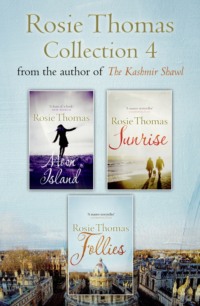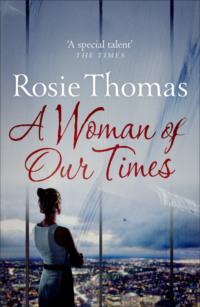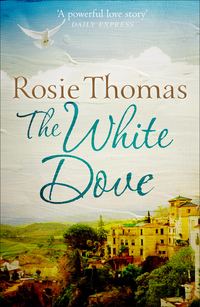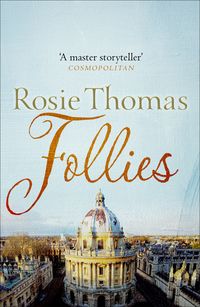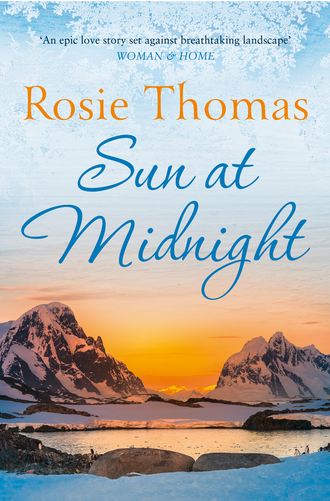
Полная версия
Sun at Midnight
‘What happened?’ he mumbled. He meant what had happened to the man he had killed.
‘You ran off and left me in some shitty bar with a bunch of creeps, that’s what happened.’
‘The guy, Edith. Is he dead?’
She coughed and then groaned. ‘Dead? No. But he needed some help getting home. So did I, but you’d gone.’
Rooker gathered his thoughts.
Of course the man wasn’t dead. Of course not. Immediately he felt reprieved. He had a chance after all, provided he grabbed it immediately. Leave now. The words pulsed in his head, taking on neon-bright colours that hurt the insides of his eyes. Just leave, get out of here and away from this.
He went to the closet and took out his old canvas holdall. He began stuffing clothes and books into it.
Edith raised herself on one elbow. ‘What are you doing?’
‘You can see what I’m doing.’
‘Where are we going?’
It came into his mind how much he hated we. All the bars and street corners, all the beds and apartments in different cities that were contained in that small word, all the arguments and reconciliations and half-hearted bargains struck and reneged upon, not just with Edith but with other women, and to what end?
‘We aren’t going anywhere. I am.’ He flung the last handful of his belongings into his bag and zipped it up.
‘Fuck you, Rook.’
‘Whatever you say.’ His wallet was missing, he realised. Somewhere between the bar and his bed last night he had lost it, or more likely someone had stolen it. It didn’t matter. Edith sat up. Tears started in her eyes and spilled out, running down through the black patches of yesterday’s make-up. Even when she was looking ugly Edith was beautiful.
“Bye,’ he said, hoisting his bag.
‘Wait,’ she shouted, but he was already at the door. ‘I hate you,’ Edith screamed at his back. ‘I hate you.’
Rooker had gone first to Miami, where a friend of his from back in Christchurch had a small airfreight business. He was doing well. Rook stayed with him as his eye turned from red to black and then faded through purple as the cut healed, although raggedly, because he hadn’t bothered to have it stitched. He had the idea that Ken might also give him some work, but instead he pointed out quite accurately that Rook hadn’t logged any flying hours in three years and he would need some refresher training before any outfit could take him on.
‘Back to pilot school?’ Rook frowned. ‘I’m forty-six years old.’
‘Listen, mate. We both know you can fly. But this business is one hundred per cent above board and without current certification you don’t step inside one of my planes. Get it?’
‘Thanks.’ Rook shrugged.
‘Don’t mention it. And you might consider throttling back on the booze as well.’
From Miami Rooker went to Rio, mostly because he had never been there before. After Rio he went to Buenos Aires, but restlessness gnawed at him and he found himself moving further and further south, as if he was being driven away from the populous centre of the world and out to the margins, where he belonged. He didn’t try to swim against the current. He passed through Rio Gallegos and then, because there was still somewhere further to go, yet more remote, he drifted on down to Ushuaia. The southernmost town in South America clings on to the world between the tailbone of the Andes and the mountainous seas of the Drake Passage.
Now Edith had found him.
‘Would I have come all this way if I didn’t care about you?’ she murmured. She touched the tight red scar that linked his eye to his cheekbone. ‘Rook?’
‘I don’t want this.’
Her fingers were unpicking the tongue of his belt from the heavy buckle.
‘Not even for old times’ sake?’ Her lips and eyelids looked a little swollen and he remembered they always used to thicken this way when they made love. It was an unwelcome recollection, but it still excited him.
Edith’s fingers travelled downwards. ‘But you do, don’t you?’ she whispered. ‘See?’
Well, then, since you’re here, we might as well, Rook thought. If this is what you’ve come all this way for.
He propelled her backwards and hoisted her on to his bed. Immediately she twisted her legs round his waist to hold him. Her head tipped back and her black hair fanned out on his pillow. Before he closed his eyes he saw that there was a triumphant glint in her smile.
Afterwards she nestled up against him, as light as a bird.
‘We’ll find a better place than this, Rook. I’ll start looking tomorrow. Maybe one of those neat little tin-roof houses, painted bright blue or red, like I saw on the way up in the taxi? Then, once I’ve got it fixed up, I’ll look for some work. Perhaps in one of the hotels, or in the tourist office? I’ll have a blue suit, maybe, and a name badge. That would be funny, wouldn’t it? I’ll say to the tourists, “Welcome to Ushuaia. You have a nice day.” Then I’ll come on home and cook us some dinner. We’ll have a bottle of wine, watch some TV, then go to bed. Don’t you think?’
Rook thought this scenario was about as realistic as Edith deciding that she was going to be elected president and planning what to do about the White House drapes.
The room was quiet and the silence outside was unbroken. Rook sat and listened to nothing. It was only on paydays that there was much noise around these streets at night.
Edith fell asleep, curled up around her small fists. He moved softly, putting on his coat and picking up his boots from beside the stove. At the doorway he hesitated, looked back at her and wondered if he was going to feel a flicker of affection or tenderness. Nothing came. He might have been looking at a stranger asleep on a bench at a train station, or at a picture of a woman in a magazine.
He was usually impervious to the cold, but as he let himself out of the front door and walked out into the street Rooker was shivering.
In a bar, a different place from the one he had visited earlier but the same in almost every respect, he met a man he knew.
Dave was a big, shaggy blond New Zealander who did odd jobs to fund his sailing and mountaineering habits. ‘They’re hiring down south, you know,’ he told Rooker.
The only place south of Ushuaia was the Antarctic continent.
Rook took another mouthful of his drink. ‘Yeah? McMurdo?’
McMurdo was the American polar research station down on the Ross Ice Shelf. Rooker had worked there for a brief summer season when he was in his early twenties. It had been a dull interlude. He had spent most of his time driving a shuttle bus between the gritty main street of the base and the airfield a couple of miles away. His few other memories mostly involved off-duty hours spent in a windowless bar. But it was watching the helo and fixed-wing pilots swooping away, lifting off the airfield and into the limitless white, that made him realise that he wanted to be a flyer himself.
Dave shook his head. ‘Nope. It’s a new station, some rich guy’s bought a redundant base off the Brits and he’s tooling it up to be run for, whatchacallit, in Europe? The EU?’
Rooker laughed. ‘Needs something to spend his money on, does he?’
‘I guess. Sullavan, that’s his name. I came across the site on the net when I was surfin’ this morning. Sounded kinda interesting, in a crazy way.’
It did, Rooker thought. Keep going, that was the idea. Keep going, while some place even further away still beckons.
He remembered how remote McMurdo had seemed, ringed by the ice and overlooked by the cone of Mount Erebus. In comparison, Ushuaia felt like a shimmering metropolis at the very epicentre of the world.
Dave was saying that if he hadn’t fancied heading away to Byron Bay for a summer’s surfing and sailing, he might have given it a try.
‘Is that right?’
Rooker bought him another beer and a whisky for himself. He had a long night to while away.
In the end he stayed up until the last bar closed. Dave had said goodnight and gone home hours earlier, but Rooker banged on his door until he got up and let him in to doze in an armchair. When the morning finally came he didn’t show up for work. At 10 a.m., unshaven but sourly sober, he was waiting for the locutorio to open. Ahead of him in the line was a tourist couple holding a map open against the wind, the first arrivals of the summer’s migration.
Paula, the locutorio manager, came up the concrete steps and unlocked the door. She flashed him a smile and gave him the best terminal in exchange for three pesos. Rooker logged on and began the search for Lewis Sullavan’s polar website.
CHAPTER TWO
It was a warm, still day. There were pools of deep shadow under the great trees and the river reflected the light like a sheet of crumpled tinfoil. Drawn by the day’s brilliance, Alice Peel had left her desk on an impulse and walked out into the University Parks. She moved slowly, letting the sun beat on the top of her head and the back of her neck. Once she stretched her arms out in front of her, absently noting the pallor of her skin. It was a weekday and it felt odd but distinctly pleasant to be wandering around in the middle of the afternoon. There were only a few other strolling or lounging figures dotted against the wide swath of grass. There was almost another month to go before the students returned and the academic year slipped into gear once more.
The scent of mown grass mingled with dust from the path. It had been a dry summer and the margins of the leaves were nibbled with brown. When she glanced up into the blue sky she saw a contrail sketched by the pinpoint of an aircraft. She wondered briefly where the plane was headed, with its cargo of passengers and their expectations. The speculation faded gently in her mind, like the vapour itself dissolving against the sky.
When the path reached the river she turned left to follow the curve of the bank. Ahead of her a footbridge and its reflection merged to make an O, the lower half blurred like a winking eye. She listened to the slow beat of her own footfalls and then to the tinny scratching of distant music. The scratching grew steadily louder and a punt rounded a bend in the river. Framed in the bridge’s O, it turned watery furrows of pewter and olive-green as it surged closer. A girl was vigorously poling. When she lifted the pole between thrusts, droplets ran down her arm and beaded the smooth wood, then struck silvery chips out of the water’s surface. The punt’s four or five passengers lolled on the cushions, laughing up at her. Their voices cut across the music.
The girl’s T-shirt rode up to reveal a tattoo on her belly. The punt was close enough for Alice to see that the design was a butterfly before she realised that the man sitting on the flat prow with his back to her was Peter. The thick hair was his, and the skull’s distinctive architecture beneath it, and the faded shirt was the one she had washed yesterday and hung out to dry on the line in the back garden. He was leaning back, supporting his weight on his splayed hands. The unexpected sight of him made her heart jump.
The punt drew level. The voices and the laughter were loud, raised over the blare of music. The girl with the pole didn’t glance at her. The long craft slid by, stirring the smell of mud and weeds mingled with boat varnish.
Peter’s head idly tilted, then he caught sight of Alice, already receding on the riverbank. He sat upright. ‘Al! Hello, Al!’
He scrambled to his feet, windmilling his arms at her. The punt rocked wildly and he danced barefoot on the slippery wood. She caught a brief glimpse of surprise like a flaw in the ready glitter of his smile.
‘Aaaaa-al,’ he shouted again. He was already into a jump, knees drawn up to his chest, the smile still seeming to hang in the air as his limbs hit the water. A plume of glittering spray shot into the air to the accompaniment of shrieks from the punt’s passengers. The girl didn’t shout. She stood looking back over her shoulder, her weight resting on one hip so that her body made a graceful curve against the willow trees on the opposite bank. The pole trailed in her hand.
Peter’s head broke the water and he struck out towards Alice. A minute later he hauled himself on to the bank. Grinning and dripping, he shook himself like a huge dog. Dark droplets of water spattered the dust.
‘Hi,’ he gasped to Alice. “Bye!’ he called after the punt as it slid away.
Disregarding his sopping clothes, Peter swept her into his arms. A watery kiss landed on her cheek.
‘Pete,’ she said. She wasn’t surprised. The shouting, the impetuous leap into the water, they were all typical of him. But she felt disquiet wrinkling her usual smooth tolerance of his extravagant behaviour. The declining sun shone straight into her eyes, causing her to frown. ‘Who were they?’
He waved the arm that wasn’t attached to her, spinning out more drops to pockmark the dust. ‘Students.’
‘I thought you were teaching today.’
Peter was an artist. He built big cuboid sculptures of tubes and wire and twisted metal that also incorporated found objects like pram frames and tailors’ dummies. He didn’t sell a lot of his work and he taught an art summer school for extra money.
‘We were playing hookey. And I thought you were working. Hey. Since we’re both not working, let’s go and have tea somewhere.’
‘But you’re wet.’
‘You’re dry enough for both of us.’ He kissed her again, on the tip of her nose. ‘Lovely and dry and warm. Are you hungry? Come on. Scones and cream. You know you want to.’
She smiled at him. There was a café near the gates of the Parks. They walked there together, Peter comically wincing whenever his bare feet encountered a sharp stone.
On the way they met a sculptor who rented the studio next to Peter’s. Pete introduced him to Alice and they lingered to talk.
‘I was in a punt, Alice was on the bank, so what could I do but jump in and swim to her?’ Peter laughed as he explained.
‘Er, pole in to the bank and just step ashore?’ Mark was literal-minded.
‘You have no soul,’ Peter rebuked him.
They ended up heading for the café together.
Alice walked beside Mark and Peter shuffled backwards ahead of the two of them so he could see and talk at the same time. As they passed a builder’s skip outside the park gates he noticed a typist’s chair with the padded seat and back support missing. He hoisted it by the metal claw foot and carried it away with him, spinning the shaft as he talked.
There was a table free in the little row on the pavement outside the café and they crowded round it. Peter took off his shirt and draped it over his salvaged chair skeleton. His arms and shoulders were well developed from lugging heavy materials and oxyacetylene welding gear. Steam rose gently from his damp trousers.
When it arrived, Alice poured the tea. The others were talking about art.
She half listened to a heated conversation she seemed to have been overhearing ever since she had known Peter. In her experience art always appeared to involve arguments. It was messily subjective. To Pete, one piece of work might be magnificent, enormously impressive, and another might be timid, derivative shit or mere fusty doodling (to employ his vocabulary), but Alice could never work out which was going to be which, or if there was any empirical evidence on which to base these opinions. She found it difficult to predict what Pete was going to admire and what he would dismiss, and whenever she thought she had mastered one critical vocabulary so they might at least discuss the matter, the entire language was prone to change.
In the end it came down to a matter of taste, she believed, and there was no measuring or calibrating taste.
Science was different. As a scientist herself and the child of scientists, Alice had reason and logic in her blood. Knowledge meant measurement, demonstration, proof. Theories could be postulated, but it was necessary to back them up with solid data. Evidence was searched for and analysed, and knowledge slowly but steadily built up, tiny accretions of it accumulating in layers to make solid bulwarks of unassailable fact. There was debate and there were opposing theories, of course, and there was international and personal competition, but the main thrust was mutually constructive and collaborative. Unlike art.
‘What’s funny?’ Mark asked her. Alice hadn’t realised that she was smiling.
‘Nothing, really. I’m just listening.’
‘But what do you think?’
Sunlight lay across the table. The tea in her cup reflected a glittering bronze disc. Pete sprawled back in his chair, lanky and at ease, grinning at her. Their life together was made up of a series of small encounters like this one. They met friends, had tea or dinner or went to the pub together. They went to parties and gave their own – were giving one the very next evening, in fact. Peter was gregarious and liked nothing better than to gather a crowd of people around him. It meant that she didn’t see a lot of him on his own, but she didn’t mind that. She had what she wanted in life.
She smiled more broadly now. ‘I think I’d like another scone before Pete devours the lot.’
She didn’t want to be drawn into the endless discussions about art. Peter never listened to anyone else anyway. He stopped with half a scone almost into his mouth and returned it to his plate. Scooping some extra jam on top, he transferred it to Alice’s plate.
‘Thank you.’
‘What do you do? Are you an artist?’ Mark persisted.
‘A scientist. A sedimentary geologist.’
‘My God,’ he said.
‘He’s one theory. Not many geologists subscribe to it, though.’
They all laughed. Alice bit into the jam-laden scone, enjoying her appetite and the lazy bickering of the two men, and the prospect of going home with Peter to their house and the quiet late-summer twilight in their tiny garden.
When the scones had been eaten and the teapot refilled and emptied twice, they stood up. As they said goodbye, Peter invited Mark to tomorrow’s party. Finally Peter shouldered his chair-remnant, and he and Alice headed for home. The route was so familiar to both of them that they could have walked it blindfolded. They crossed St Giles and walked down Beaumont Street. The end-of-the-day traffic was heavy, but when they turned into Jericho everything was quiet again. The little red-brick houses with their Gothic touches had been built in the nineteenth century for clerks and the more senior college servants, but lately they had become sought after and very expensive.
Alice couldn’t have afforded to buy one, not on an academic’s salary, and of course Peter wasn’t able to contribute anything, but her mother had helped her with the down payment.
This sequence of recollections didn’t quite play itself out in full as she opened the low gate, but it coloured the fabric of her thoughts. Sometimes it seemed to Alice that her mother’s life was always the vivid, engrossing, three-dimensional backdrop against which her own activities were executed on a much dimmer and smaller scale.
Peter hoisted the wrecked chair straight over the wall, snapping one of the rose branches that she was training over a rope swag. It landed foot uppermost, the wheeled claw sluggishly rotating.
‘Will it be safe there?’ she asked as he followed her up the short tiled path to the front door.
He took her question entirely at face value. ‘Should be. I’ll take it over to the studio first thing.’
It was cool inside the house. From where she stood in the hallway, as Pete’s mouth brushed against the nape of her neck, Alice could see straight through the kitchen doors into the garden. There was a blue-painted bench and a little rustic table, and a crab-apple tree for shade.
Pete’s hands slid up and cupped her breasts. ‘Mmm?’ he said. ‘Come on. Let’s go to bed.’
Their bedroom would be cool too, behind white blinds.
With clasped hands they trod up the stairs.
A minute later they were stretched out on the white-covered bed. Alice tipped her head back, her eyes closed, and Pete’s hand secured her wrists above her head so she couldn’t break free. On the bedside table the phone cheeped. Pete swore, but neither of them made a move towards it. After a dozen rings, the answering machine picked up.
‘Alice, are you there?’
There was a pause and then an audible tut-tutting of annoyance. ‘Well, wherever can you be, at this time of day? I need to speak to you. Give me a ring straight back, won’t you?’ The voice was brisk, busy as always.
‘Yes, ma’am,’ Pete murmured. He gathered Alice up and rolled adroitly so that she ended up on top. He never voiced any criticism of Alice’s mother, the formidable Margaret Mather, but there was not much love lost. Alice didn’t pursue this line of thought either. Now was not the time to be thinking about Margaret. Now was not the time to be thinking of anything but this.
Afterwards they lay with their legs interlocked, listening to the small sounds of the street through the open window. Pete hummed a little, an unborn sequence of notes reverberating deep in his chest. Alice smiled, her cheek against his shoulder sticky with their mingled sweat.
She would call in and see her parents in the morning.
Margaret Mather sat at the gate-legged table in the large bay window of the house on Boar’s Hill. Books and papers and correspondence leaned in haphazard piles on either side of her computer monitor and keyboard. She had never been tidy, or even faintly house-proud, and the table was littered with half-full teacups and dirty plates as well as her sheaves of work. The rest of the room was cluttered and dusty, and the Persian rugs were matted with cat hair. The cat itself, a fat white creature with a penetrating smell, lay on the sofa and licked its rear parts.
Margaret’s husband Trevor worked or read in his small upstairs study with a view of the sloping garden. His room was bare by comparison and together with Alice’s old bedroom it represented the only ordered area in the entire house. Although Alice had long ago left home, her room remained exactly as it had always been. Her teenage books filled the shelves and there were framed school and netball team photographs on the walls. It wasn’t that Margaret had preserved it as any kind of shrine to her daughter’s childhood, rather that she had never got around to doing anything else with it. In the same way, a hopbine gathered on a country holiday twelve years earlier was still rakishly pinned to the beam in the kitchen, and was now a dust-and-grease fossil of its former self.
Margaret was listening to music and working through the morning’s e-mails. She peered at the screen through her bifocals, reading interesting titbits aloud to herself and muttering the responses as she prodded them out of her keyboard. She was in her seventies, but she took to new technology with enthusiasm. E-mail made her complicated correspondences with friends and with fellow scientists all over the world much easier. She loved to explain to anyone who would listen that, for example, she could now chat on a daily basis with her old friend Harvey Golding who was based in San Diego and whom she hadn’t seen in the flesh for more than twelve years.
‘And I can keep abreast. See what the others are up to. It’s all there on the net, you know. Much easier nowadays.’
By ‘the others’ she meant scientists working in her field, marine mammal biology.
In the 1960s Margaret had made a series of television films about whales and seals in the seas surrounding Antarctica. She spent many months of the year living down on the ice, even doing most of her own underwater camerawork. She wrote the films’ drily lyrical commentaries too, and narrated them in her strong Yorkshire accent. The series made her and her voice famous.
She was never short of energy. Even after she had become a celebrity she continued her research and maintained her reputation as a serious scientist. Her meticulous work on the breeding patterns of Weddell seals pioneered a subsequent generation of Antarctic studies.



